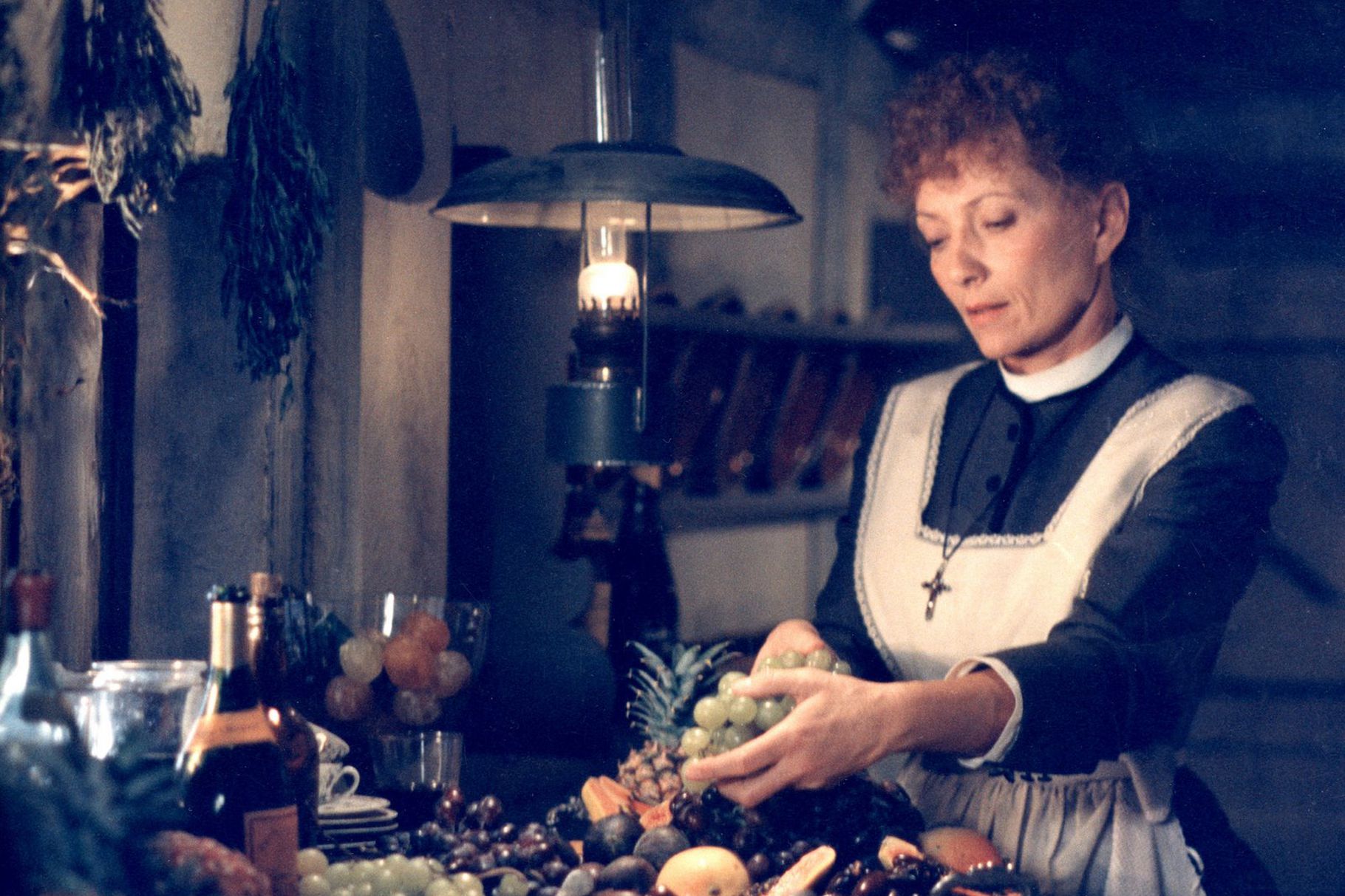Recently, I found myself hungering for grace. With the world still entrenched in this pandemic, we witness the complexities around public safety, the angry words, the strained relationships, the exhaustion, and the challenges to everyone’s mental well-being. Is there any good news?
I decided to revisit a movie from the 1980s, a parable called Babette’s Feast. (Spoiler alert: the next four paragraphs reveal the plot.) Based on a short story by author Isak Dinesen, the award-winning film depicts a small Christian community living in an isolated village. Theirs is a bleak religion, preaching glorious visions of heaven but with little on earth to be savoured. Contention and judgmentalism pull the group’s members apart. Even their daily meals are meagre: boiled cod and black-bread stew.
A stranger comes to shelter in one of their households and asks to become a servant. She is Babette, fleeing from danger in her home country. One day, Babette wins a large amount of money, enough to provide a secure future for herself. She asks for permission to cook a special meal for the small group, and over the next days, she labours over every detail. The austere Christians begin to fret that the culinary result will be too extravagant. As feast day approaches, they resolve to eat the meal out of courtesy to Babette but to make no mention of its taste or presentation. They would eat the meal out of duty alone.
The multi-course meal is in fact splendid! But, with down-turned eyes, the local guests do not demonstrate any appreciation. Only one—an outsider—recognizes the quality of the feast and notes the care with which it was created.
When the event is over and Babette rests from her efforts, her employers learn that she spent all her money on that feast—a gift given freely, a labour of her love, with no expectation of recognition or thanks.
The word that comes to mind is “grace.” At its simplest, grace is a kindness given freely to someone who may or may not even deserve it. Grace costs something to the giver, and grace invites only an open heart to receive the precious gift.
In his best-selling book, What’s So Amazing about Grace?, Phil Yancey writes, “Grace means there is nothing I can do to make God love me more, and nothing I can do to make God love me less. It means that I, even I who deserve the opposite, am invited to take my place at the table in God’s family.”
God’s grace is evident throughout the entire biblical story, to individuals and to entire groups of people. God’s grace spared the population of Nineveh from destruction—a grace extended even to its animals! It was grace that rescued the Pharisee Saul from a life persecuting Jesus’ followers to a life of nurturing and encouraging them. Saul/Paul understood the depth of God’s grace, and his writings to the early church are replete with the gospel of grace.
Christmas invites us to open our hearts to God’s grace. Of Jesus, the Gospel of John says, “And the Word became flesh and lived among us, and we have seen his glory, the glory as of a father’s only son, full of grace and truth” (John 1:14). Jesus, God in human form, revealed through words and actions “the compassionate and gracious God, slow to anger, abounding in love and faithfulness” (Exodus 34:6).
Living in these times of ungrace, we long for acceptance and blessing. But who of us deserves this feast of love? If we are honest, we acknowledge our wrongful behaviours, our lack of generous actions, and the times when we have been unlovable and undeserving of any favour.
Sometimes grace shows up in big, miraculous ways. But many times grace sneaks up in small acts: a helping hand, a word of kindness, a misdeed forgiven, or even an elaborate meal. At times when grace seem invisible, God is whispering—and sometimes shouting: “You are worthy. And I love you!”
When we are impatient with ourselves and with each other, when harsh words are spoken, when anxieties keep us awake, when decision-making is hard, when we feel unwanted and unloved—God’s grace is there. Remembering how the Christ Child entered into our human experience, let us open our hearts to receive, and to share, this feast of wondrous grace.
“Grace to you and peace from God our Father and the Lord Jesus Christ.”
Read more editorials:
A new call for MC Canada
In the headlines
On the road toward wisdom
Ordinary time
Values that set us apart









Leave a Reply
You must be logged in to post a comment.